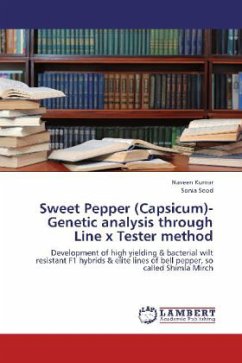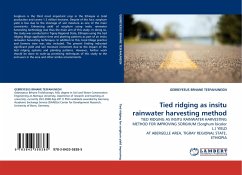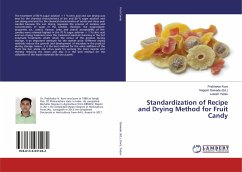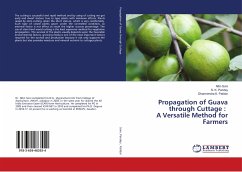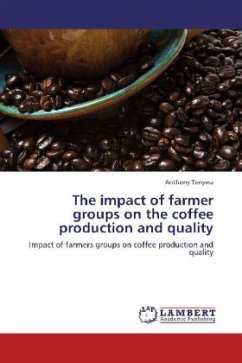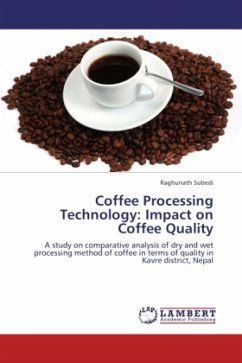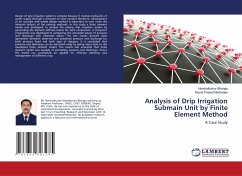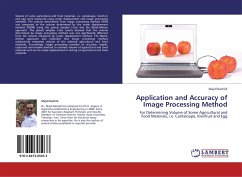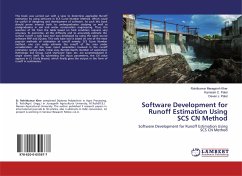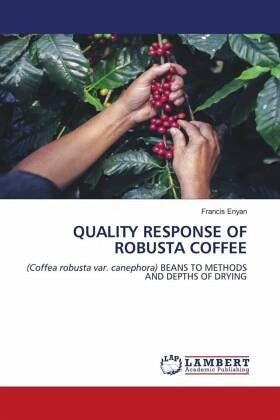
QUALITY RESPONSE OF ROBUSTA COFFEE
(Coffea robusta var. canephora) BEANS TO METHODS AND DEPTHS OF DRYING
Versandkostenfrei!
Versandfertig in 6-10 Tagen
40,99 €
inkl. MwSt.

PAYBACK Punkte
20 °P sammeln!
Ghana is best known, as the second largest producer of cocoa beans. Apart from cocoa, Ghana also produces some significant amount of Robusta coffee beans, the quality of which is poor as a result of poor processing methods. Studies was conducted to investigate the impact of drying methods and depths on the quality of Robusta coffee beans at Kwahu Bepong, with laboratory support from the Cocoa Research Institute of Ghana (CRIG) and the Horticulture Department of Kwame Nkrumah University of Science and Technology. The study aims to (I) determine the combined effect of drying method and depth on ...
Ghana is best known, as the second largest producer of cocoa beans. Apart from cocoa, Ghana also produces some significant amount of Robusta coffee beans, the quality of which is poor as a result of poor processing methods. Studies was conducted to investigate the impact of drying methods and depths on the quality of Robusta coffee beans at Kwahu Bepong, with laboratory support from the Cocoa Research Institute of Ghana (CRIG) and the Horticulture Department of Kwame Nkrumah University of Science and Technology. The study aims to (I) determine the combined effect of drying method and depth on coffee cup quality, and (II) assess the impact of drying on fungal mold incidence. The experimental design includes three drying methods and three depths, and data is collected on drying duration, caffeine and protein content, temperature and moisture in bean heaps, fungal load, and defective beans. Results show significant differences in various factors based on drying methods and depths. While drying methods do not affect caffeine content, microbial counts reveal Aspergillus species as predominant. Beans dried on raised raffia mats exhibit faster drying and lower microbial counts.




